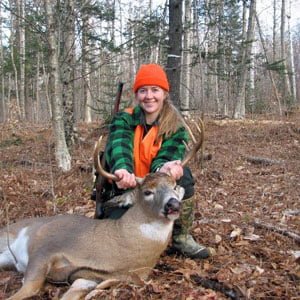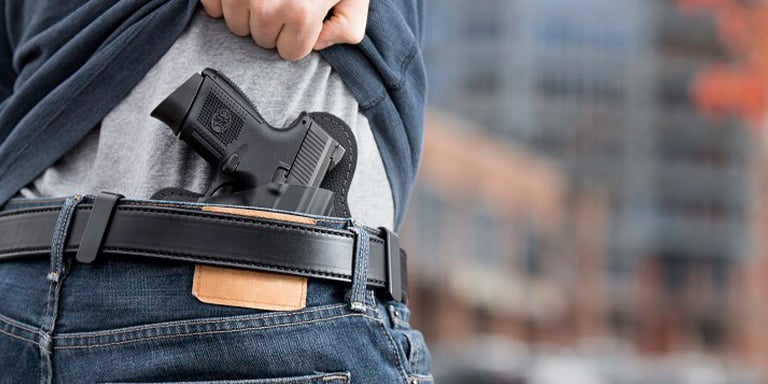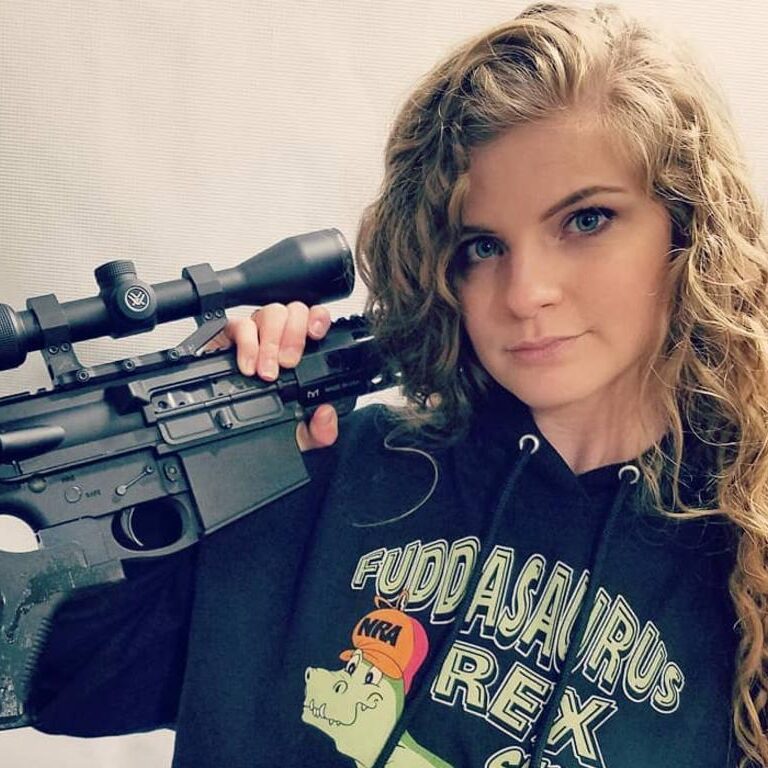Vermont Hunting
Vermont, one of the states in the Northeastern USA, offers a rich hunting experience deeply rooted in history. The state has a long tradition of hunting, being the first to incorporate hunting laws into its constitution. Vermont’s diverse landscapes and abundant wildlife make it an enticing destination for hunting enthusiasts. This article will guide you through the regulations, licenses, permits, and seasons for hunting in Vermont, providing a comprehensive overview for both residents and non-residents.
Vermont Hunting Regulations
Vermont has strict hunting laws, regulations, and requirements to ensure wildlife conservation and safety. Understanding these regulations is essential for anyone looking to hunt in the state. Some of the critical hunting requirements include:
Unlawful Hunting Conduct
Unlawful hunting conduct in Vermont, including taking, transporting, or possessing game animals or wildlife outside their specific seasons, is prohibited, except when permitted by Vermont wildlife and fishing laws. It also prohibits the destruction of wild bird nests or eggs, in accordance with Vermont’s Firearm Policies.
Selling Games in Vermont
Vermont has strict prohibitions on selling various game birds and animals. Exceptions are allowed for the plumage of game birds lawfully taken and sold under the Vermont Federal Migratory Bird Treaty Act. However, there are specific rules for selling finished wildlife products and the body parts of legally taken deer, bear, and moose.
Vermont Hide License
To commercially purchase, sell, or trade game animals’ untanned hides or other body parts of wildlife, a Vermont Hide License is mandatory. All transactions involving wildlife or game animals must comply with state laws and regulations.
Night Hunting in Vermont
Most night hunting is prohibited in Vermont, except for raccoon night hunting during their open season. Specific requirements, such as using a hunting dog and a hunting rifle or handgun with limited caliber, must be met for raccoon hunting at night.
Placing Bait for Vermont Hunting
Baiting is allowed in Vermont, but strict rules apply. Hunters must obtain consent from the landowner before using any bait. The bait must be labeled with the hunter’s details, and upon the landowner’s request, the bait must be promptly cleaned up.
Shooting Distances for Hunting in Vermont
Hunters are not allowed to shoot within 100 yards of a residential building without permission from the owner or an adult occupant.
Open Carry While Hunting
Openly carrying firearms is legal in Vermont while hunting. However, if you have a permit for archery hunting, taking down any animal with a firearm is strictly prohibited.
Hunter Harassment Laws
Vermont has laws against harassing hunters and interfering with their activities. These laws also protect farmers and recreational activities from being hindered by hunter harassment.
Vermont Hunting Licenses, Permits, and Tags
Obtaining the right licenses, permits, and tags is crucial for legal hunting in Vermont. The state issues various licenses based on age, residency, and game animals.
Apprentice Hunting License
Available for residents and non-residents aged 16 and above who have never held an adult hunting license.
Vermont Lifetime Hunting Licenses
Vermont issues lifetime licenses based on age. These licenses are available for residents.
Other Residents Hunting Licenses
For resident hunters aged 16 and above, Vermont offers specific licenses for big game hunting, small game hunting, and a combination hunting and fishing license.
Vermont Nonresident Hunting License
Non-resident hunters have various options, including big game hunting licenses, 3-day small game hunting licenses, and combination hunting and fishing licenses.
Vermont Fishing Licenses, Permits, and Tags
For fishing enthusiasts, Vermont offers season fishing licenses, hunting and fishing combination licenses, archery and fishing combination licenses, and more.
Vermont Hunting Seasons
Hunting seasons in Vermont vary for different game animals and the types of hunting firearms allowed. The hunting seasons for various wildlife in Vermont include:
Vermont Deer Hunting Seasons
- Resident Only Hunting Season (October 31st)
- Youth Hunting Season (October 24th)
- Firearms Hunting Season (November 2nd to November 28th)
- Archery Hunting Season (October 3rd to October 30th)
- Muzzleloader Hunting Season (Statewide: November 30th to December 5th, Selected Regions: December 7th to December 12th)
- Expanded Archery Season (September 12th to December 12th)
Vermont Bear Hunting Season
- General Hunting Season (August 31st to November 28th)
- Dogs Hunting Season (September 14th to October 30th)
- Bears Bait Hunting Season (August 31st to September 26th)
- Youth Hunting Day/Season (August 29th)
Vermont Moose Hunting Season
- General Hunting Season (September 28th to November 28th)
- Resident Only Day/Season (October 31st)
Vermont Wild Turkey Season
- Fall Hunting Season (September 14th to November 7th)
- Spring Hunting Season (March 3rd to June 6th)
- Spring Youth Hunting Season/Day (May 1st)
Vermont Small Games Hunting Season
- Gray Squirrel Hunting Season (September 26th to December 31st)
- Snowshoe Hare Hunting Season (September 26th to March 31st)
- Bobcat Hunting Season (December 1st to February 29th)
- Woodchuck Hunting Season (Open Season)
- Coyote Hunting Season (Open Season)
- Porcupine Hunting Season (Open Season)
- Red Squirrel Hunting Season (Open Season)
- Coyote Night Hunting Season (December 16th to August 31st)
- Ruffed Grouse and Bobwhite Quail Hunting Season (September 26th to December 31st)
Vermont Wildlife, Games, and Fishes
Vermont offers diverse wildlife for hunting, including:
- Vermont Deer Hunting
- Vermont Black Bear Hunting
- Vermont Moose Hunting
- Vermont Turkey Hunting
- Vermont Grouse Hunting
- Vermont Duck Hunting
Vermont Shooting Ranges
For those who wish to practice their shooting skills, Vermont has several public shooting ranges open to the general public. Some popular ones include:
- Alburg Rod & Gun Club
- Underhill Rod & Gun Club
- Black River Valley Rod & Gun Club
- Chester Rod & Gun Club
- Lamoille Valley Fish & Game Club
- Hale Mountain Fish & Game Club
Vermont Hunting Lands for Sale and Lease
Hunting lands for sale and lease in Vermont offer opportunities for those who wish to own or temporarily use private hunting grounds. Some of these lands include:
- Chelsea, Vermont (Orange County) – 30 acres
- Pittsford, Vermont (Rutland County) – 22.6 acres
- Middlesex, Vermont (Washington County) – 83 acres
- Bristol, Vermont (Addison County) – 605.93 acres
- Burke, Vermont (Caledonia County) – 110.5 acres
- Hubbardton, Vermont (Rutland County) – 31 acres
- Newfane, Vermont (Windham County) – 67.1 acres
- Hyde Park, Vermont (Lamoille County) – 65.6 acres
Vermont Public Hunting Lands
For hunters seeking public hunting opportunities, Vermont has various public hunting lands that offer diverse wildlife and habitats to explore. Some of these lands include:
- 624 Acres in Windsor County for hunting Whitetail Deer, Turkey, Predator, Exotics
- 80 Acres in Windsor County for hunting Whitetail Deer, Turkey, Predator, Exotics
- 7788 Acres in Windsor County for hunting Whitetail Deer, Predator, Exotics
- 707 Acres in Bennington County for hunting Whitetail Deer, Turkey, Duck, Predator, Exotics
- 656 Acres in Windsor County for hunting Whitetail Deer, Turkey, Exotics
- 799 Acres in Windham County for hunting Whitetail Deer, Turkey, Predator, Exotics
- 252 Acres in Windsor County for hunting Whitetail Deer, Turkey, Duck, Predator, Exotics
- 1272 Acres in Windsor County for hunting Whitetail Deer, Turkey, Predator, Exotics
- 216 Acres in Windsor County for hunting Whitetail Deer, Predator, Exotics
Conclusion
Vermont’s hunting opportunities and regulations make it an excellent destination for enthusiasts seeking a thrilling hunting experience. With a rich diversity of game animals and vast hunting lands, Vermont offers a memorable adventure for both residents and non-residents alike. Before embarking on your hunting journey, ensure you obtain the necessary licenses, comply with the regulations, and respect the wildlife and habitats. Happy hunting!
FAQs;
Q1. Can non-residents hunt in Vermont?
Yes, non-residents can hunt in Vermont by obtaining the appropriate hunting licenses and permits.
Q2. What is the most common game for hunting in Vermont?
Some of the most common games for hunting in Vermont include deer, bear, moose, turkey, and small game animals.
Q3. Are there any specific restrictions for night hunting in Vermont?
Yes, night hunting is generally prohibited, except for raccoon night hunting during their open season, subject to specific requirements.
Q4. Do I need permission to use bait for hunting in Vermont?
Yes, hunters must obtain consent from the landowner before using any bait, and the bait must be appropriately labeled.
Q5. What are the shooting distance restrictions for hunting in Vermont?
Hunters are not allowed to shoot within 100 yards of a residential building without permission from the owner or an adult occupant.







